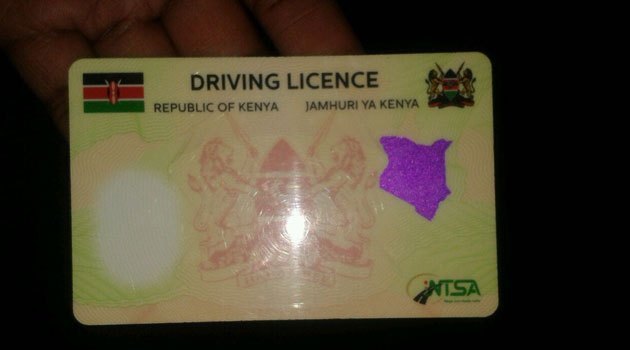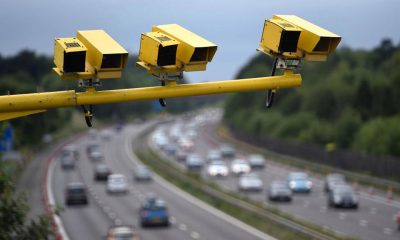Investigations
NTSA Lacks Control Over Its Own Portal, Audit Reveals It’s Run by ‘Dark’ Figures
NTSA staff find themselves reduced to mere spectators of a system they supposedly own, unable to generate the comprehensive reports essential for proper oversight and accountability.

Government agency lacks control over Sh186 million system handling sensitive transport data
A shocking audit report has exposed how the National Transport and Safety Authority surrendered control of its flagship Transport Integrated Management System to an unnamed private company, despite taxpayers footing a hefty Sh186 million bill for the critical platform.
The damning revelations by Auditor-General Nancy Gathungu paint a picture of a government agency operating in the dark, with severely restricted access to its own system that processes millions of sensitive transport transactions daily.
NTSA staff find themselves reduced to mere spectators of a system they supposedly own, unable to generate the comprehensive reports essential for proper oversight and accountability.
The Transport Integrated Management System, commissioned in March 2023, has become a black box operation where the very agency responsible for Kenya’s transport safety operates without meaningful control over its primary digital infrastructure.
This extraordinary arrangement has left NTSA workers scrambling with limited functionalities while an undisclosed private entity maintains full operational command of the platform handling vehicle registrations, driving licenses, and countless other critical services.
The audit for the year ending June 2024 reveals a disturbing reality where NTSA employees can only access highly summarized reports, effectively blinding the authority to the detailed transactional data flowing through their own system.
This operational handicap prevents the agency from tracking applications effectively or verifying expected revenues from the millions of Kenyans who rely on the platform for essential transport services.
What makes this situation even more alarming is the complete absence of a formal adoption contract governing this arrangement.
The system simply migrated to the e-citizen platform without proper documentation, leaving NTSA in a precarious position with no legal framework defining their relationship with the private controller.
The financial implications are staggering. With NTSA unable to generate comprehensive reports on applications and expected revenues, the authority cannot even confirm whether it’s receiving the value for money from its substantial investment.
The audit period covering June 2024 marked the second full year of operation, yet no improvements were made to increase NTSA’s control over the system it paid to develop.
This revelation forms part of a troubling pattern emerging across Kenya’s digital government infrastructure.
The e-citizen platform, which processes over 5,000 government services and handles an average of Sh350 million in daily payments, operates under similar constraints that limit government oversight and control.
The security implications cannot be understated. Without full system control, NTSA cannot adequately protect the sensitive personal data of millions of Kenyans, including driving records, vehicle ownership details, and financial transaction information.
This data vulnerability exposes citizens to potential breaches while creating opportunities for revenue leakages that the authority cannot detect or prevent.
The Transport Integrated Management System serves as the digital backbone for Kenya’s transport sector, facilitating everything from vehicle registration and transfer of ownership to driving license applications and vehicle inspections.
The platform’s migration to private control represents a fundamental shift in how essential government services are delivered, raising profound questions about sovereignty over critical national infrastructure.
Perhaps most troubling is the audit’s silence on the identity of the private company wielding such extensive control over this vital government system.
This lack of transparency compounds concerns about the procurement process and raises uncomfortable questions about accountability in the management of public resources.
The implications extend beyond mere administrative inconvenience.
When a government agency loses operational control over its primary service delivery platform, it compromises its ability to serve citizens effectively while creating opportunities for manipulation and abuse that may go undetected for years.
As Kenya continues its digital transformation journey, the NTSA case serves as a stark warning about the risks of surrendering institutional control in pursuit of technological advancement.
The balance between innovation and sovereignty remains delicate, and the current arrangement suggests the scales have tipped dangerously toward private interests at the expense of public accountability.
Kenya Insights allows guest blogging, if you want to be published on Kenya’s most authoritative and accurate blog, have an expose, news TIPS, story angles, human interest stories, drop us an email on [email protected] or via Telegram
-

 Grapevine2 weeks ago
Grapevine2 weeks agoAlleged Male Lover Claims His Life Is in Danger, Leaks Screenshots and Private Videos Linking SportPesa CEO Ronald Karauri
-

 Grapevine1 week ago
Grapevine1 week agoRussian Man’s Secret Sex Recordings Ignite Fury as Questions Mount Over Consent and Easy Pick-Ups in Nairobi
-

 Investigations6 days ago
Investigations6 days agoMulti-Million Dollar Fraud: Three Kenyans Face US Extradition in Massive Cybercrime Conspiracy
-

 News4 days ago
News4 days agoTHE FIRM IN THE DOCK: How Kaplan and Stratton Became the Most Scrutinised Law Firm in Kenya
-

 Economy5 days ago
Economy5 days agoIran Demands Arrest, Prosecution Of Kenya’s Cup of Joe Director Director Over Sh2.6 Billion Tea Fraud
-

 Business5 days ago
Business5 days agoA Farm in Kenya’s Rift Valley Ignites a National Reckoning With Israeli Investment
-

 Business2 weeks ago
Business2 weeks agoM-Gas Pursues Carbon Credit Billions as Koko Networks Wreckage Exposes Market’s Dark Underbelly
-

 Africa1 week ago
Africa1 week agoFBI Investigates Congresswoman Ilhan Omar’s Husband’s Sh3.8 Billion Businesses in Kenya, Somalia and Dubai

























